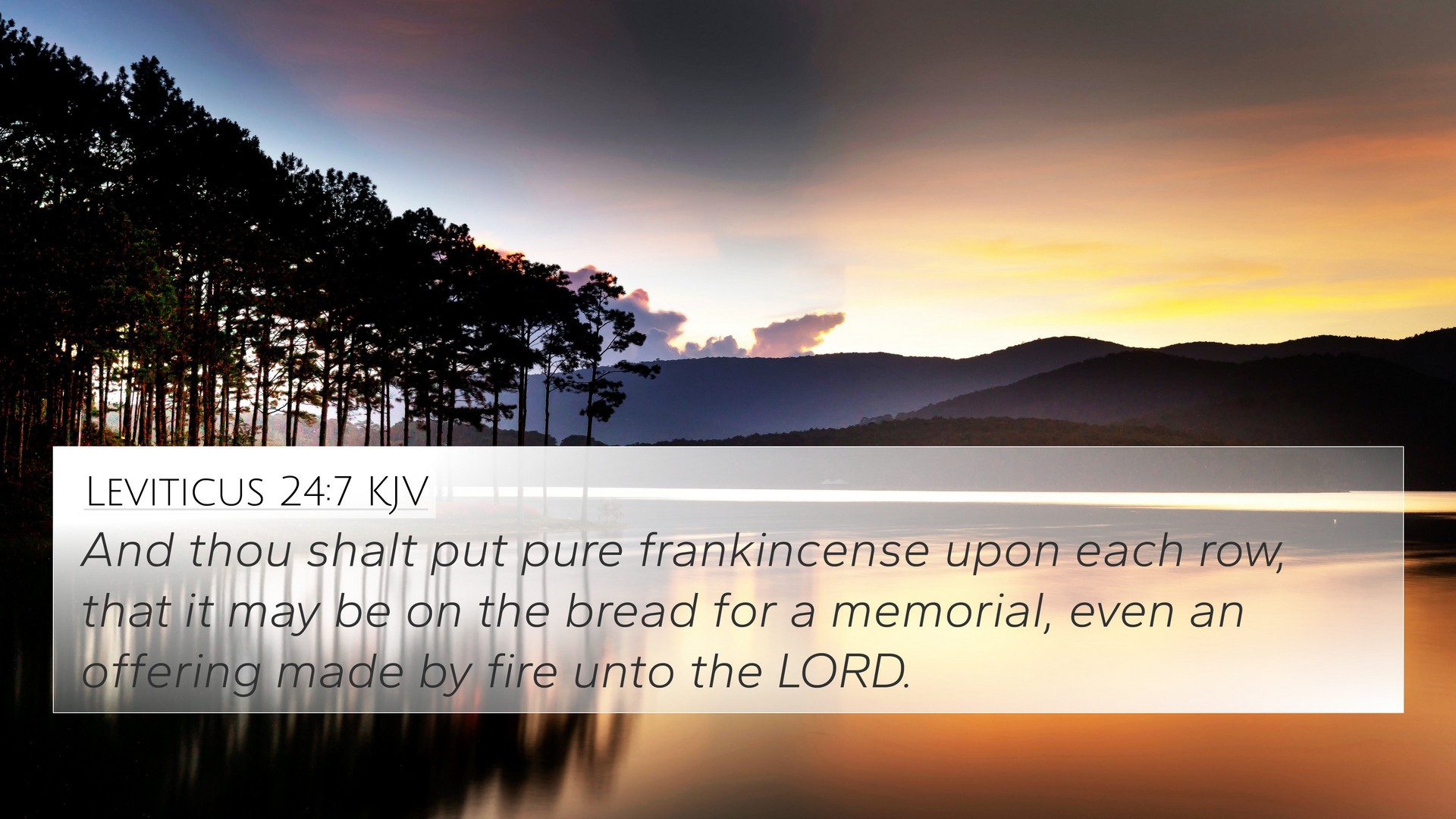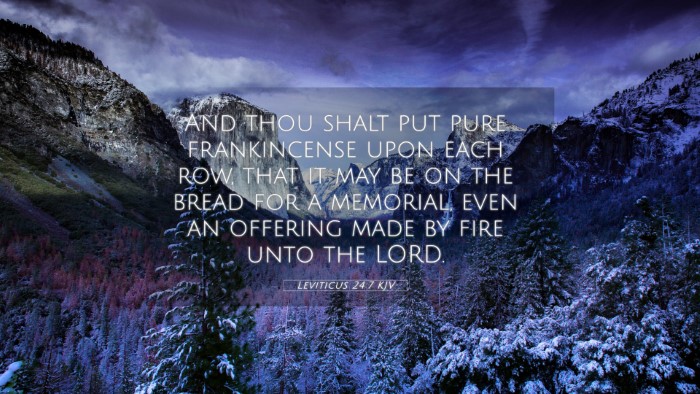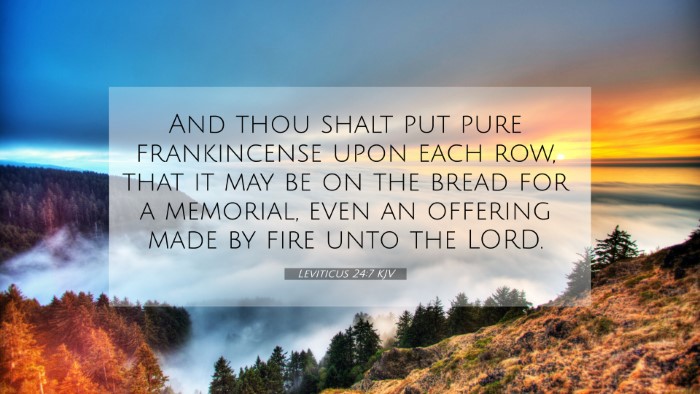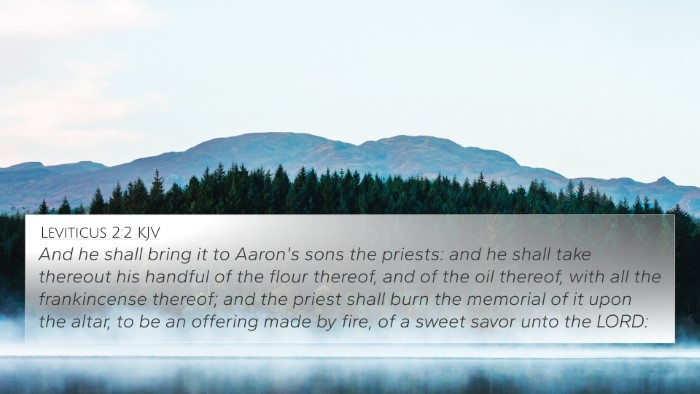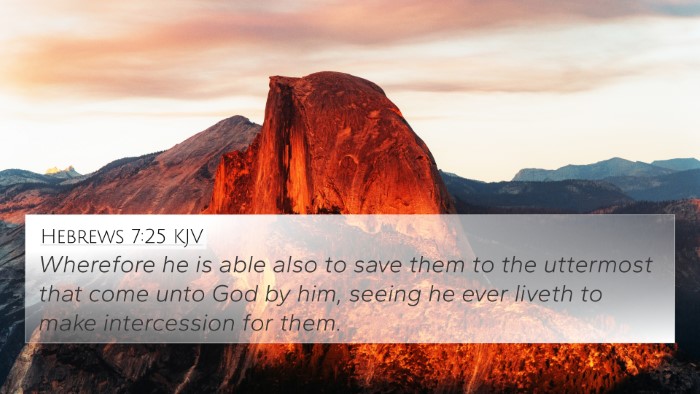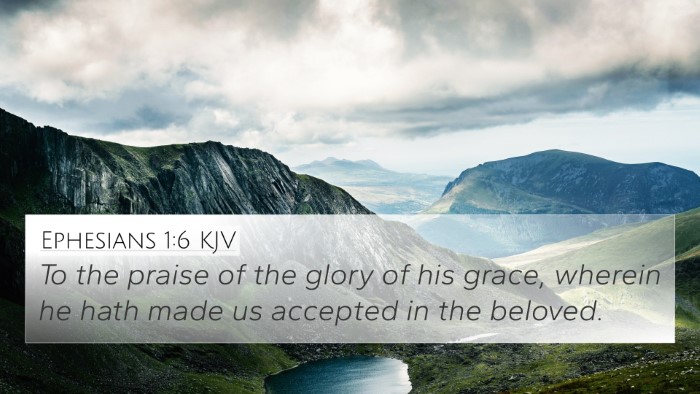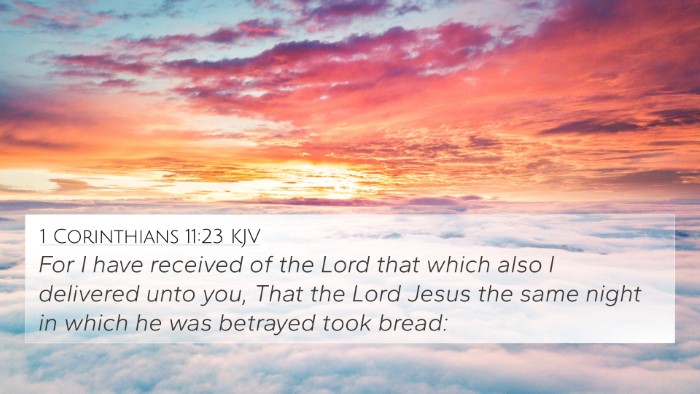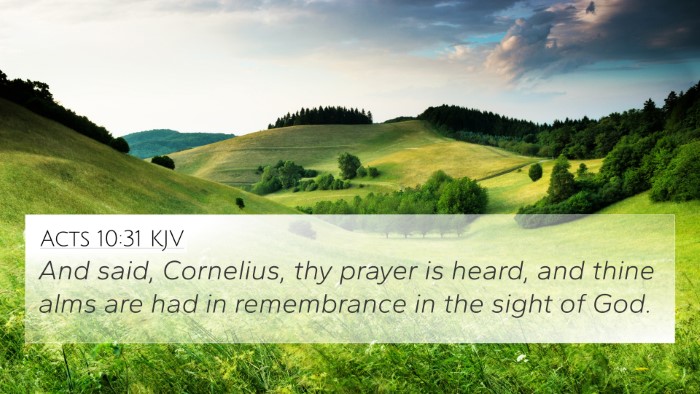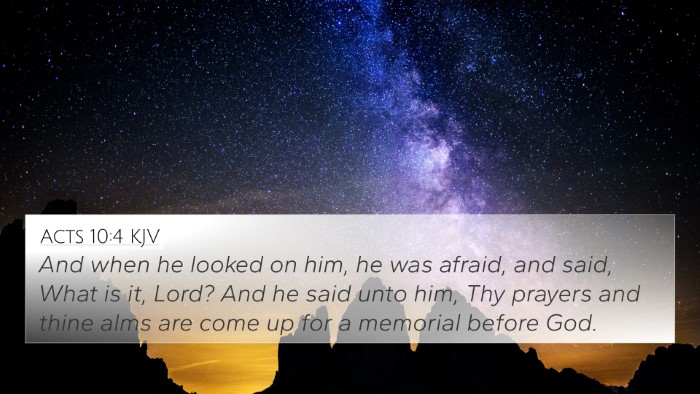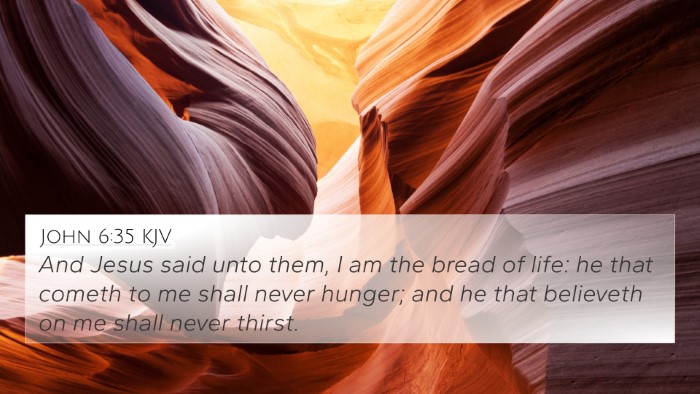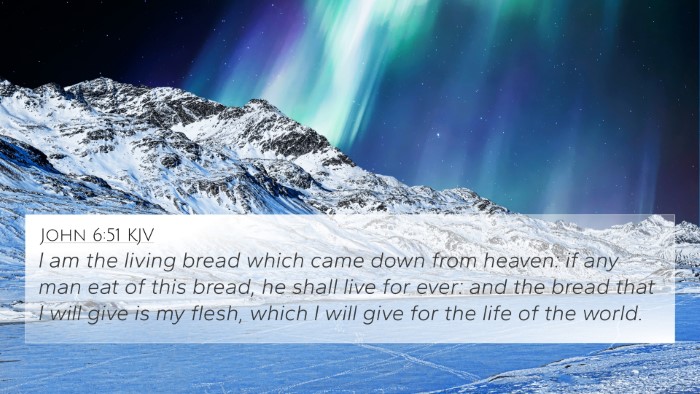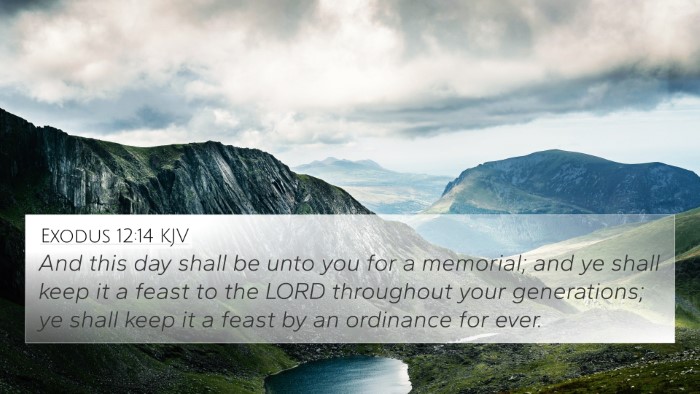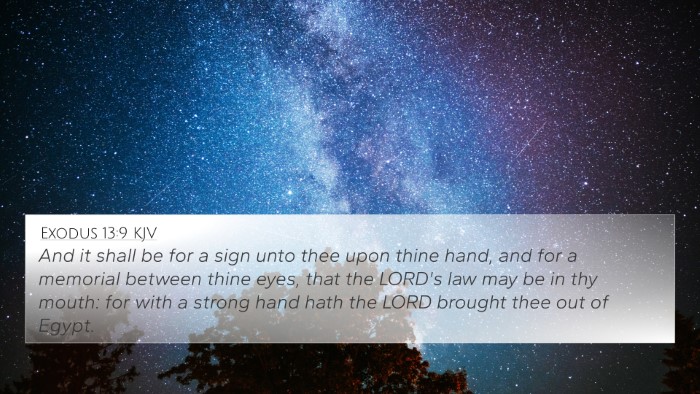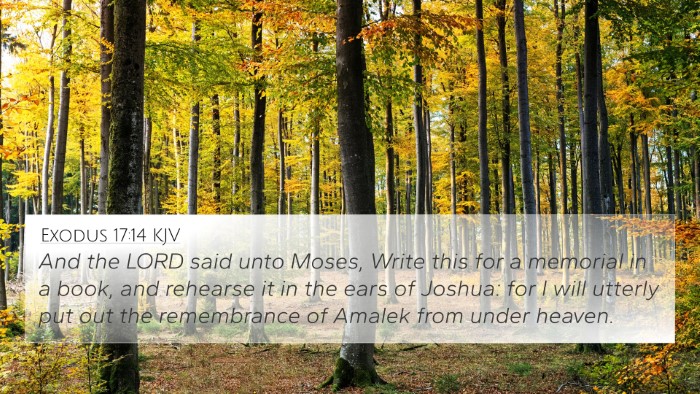Understanding Leviticus 24:7
Leviticus 24:7 states: "And thou shalt put pure frankincense upon each row, that it may be on the bread for a memorial, even an offering made by fire unto the LORD." This verse is a part of the instructions regarding the showbread, which was placed before the Lord in the tabernacle. The offerings to God were not only about physical items but also symbolic of devotion and respect for His holiness.
Contextual Overview
The verse belongs to the instructions given to the Israelites concerning the sacred offerings and the rituals to be performed in the tabernacle. It emphasizes the holiness of the offerings and the need for purity in all approaching the presence of God.
Interpretation and Significance
- Symbolism of Frankincense: Frankincense, an aromatic resin, symbolizes prayers and worship. Its inclusion in the offerings signifies the community's devotion and their spiritual ascension to God (Matthew Henry).
- Memorial Offering: The concept of a "memorial" points to the idea that God remembers His people and their offerings. It reflects a covenant relationship between God and the Israelites (Albert Barnes).
- Holiness and Purity: The verse underscores the necessity of purity in worship. This is a recurring theme in Leviticus, which codifies the rituals meant to maintain holiness among God’s people (Adam Clarke).
- Role of the Priests: The priests were responsible for the execution of these ordinances, highlighting their mediator role between God and the Israelites (Matthew Henry).
Cross-References
This verse connects to multiple other Scriptures that highlight similar themes and teachings:
- Exodus 30:34-36: Discusses the preparation of incense, elaborating on the importance of fragrance in worship.
- 1 Chronicles 9:32: Mentions the role of the Levites in the service of showbread.
- Hebrews 9:2: References the presence of the showbread in the Holy Place, underscoring its significance in New Testament theology.
- Matthew 5:23-24: Encourages believers to offer their gifts at the altar, signifying the importance of reconciliation and purity in offerings.
- 1 Peter 2:5: Refers to believers as living stones, being built into a spiritual house, resembling ongoing offerings to God.
- Hebrews 13:15: Speaks of offering the sacrifice of praise, aligning with the intent of the frankincense as a sweet offering to God.
- Revelation 8:3-4: Visualizes prayers rising like incense before God's presence, tying back to the offerings in Leviticus.
Thematic Connections
The interpretation of Leviticus 24:7 can be further enriched through thematic connections with other Bible verses:
- Prayer and Incense: Just as frankincense was an offering, prayers in Revelation symbolize the faithful communication between God and His people.
- Sacrifice and Worship: The consistent theme of worship through sacrifice can be traced from Leviticus to the New Testament, where Jesus becomes the ultimate sacrifice.
- Covenantal Relationship: The memorial aspect reflects God's persistent remembrance of the covenant, an essential theme that permeates the Scriptures.
Conclusion
Leviticus 24:7 serves as a reminder of the holiness and significance of our offerings to God. By understanding the meanings behind the rituals and offerings, believers can appreciate the continuity of God's call for purity and dedication throughout the Bible. The connections between Biblical texts provide a deeper insight into the unified message of redemption, worship, and relationship with God.
Tools for Bible Cross-Referencing
To delve deeper into the connections between Bible verses, consider using various tools such as:
- Bible concordances to find themes and words consistently.
- Bible cross-reference guides that offer various scripture links.
- Comprehensive Bible cross-reference materials for sermon preparation and study.
Understanding Leviticus 24:7 and its associated cross-references can help shed light on both the Old and New Testament narratives, enriching your study and understanding of God's Word.
